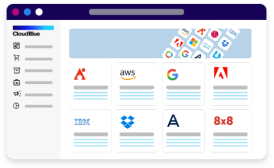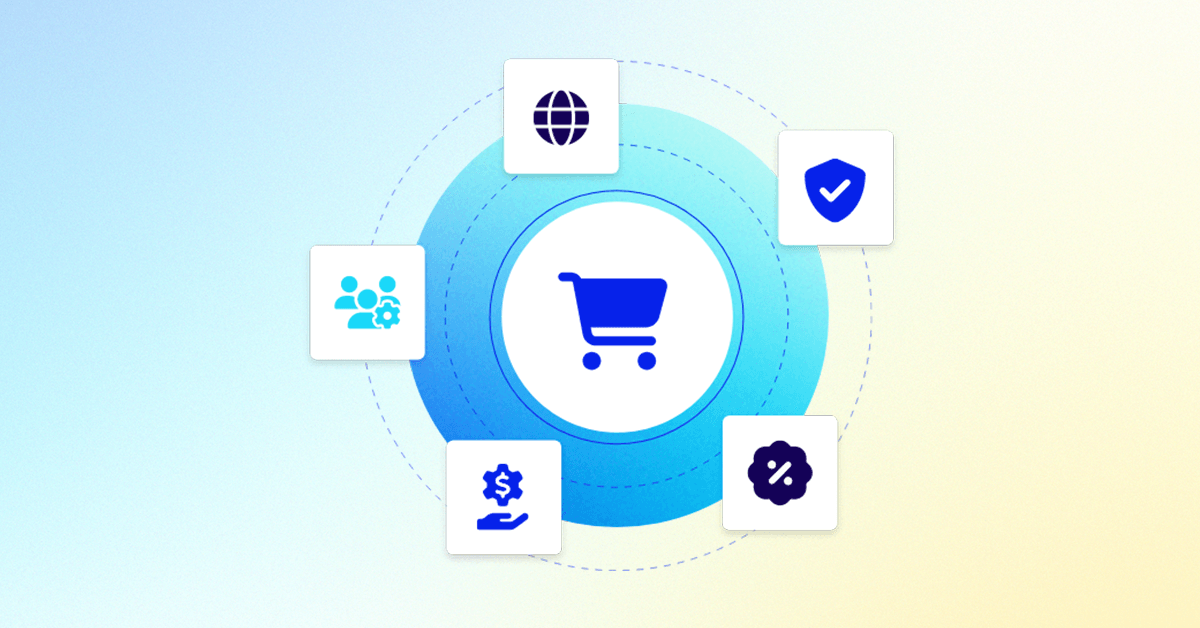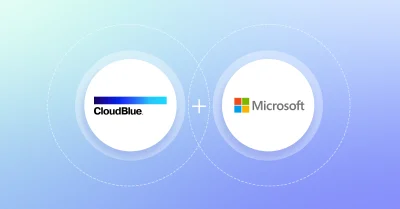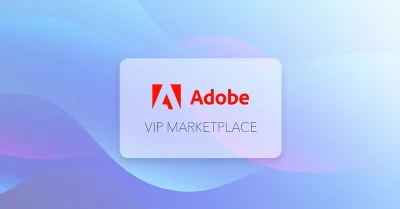Define cloud marketplace
A cloud marketplace is a platform that allows users to browse, discover, and purchase cloud computing services and products. It is essentially an online store for cloud services, similar to how an online marketplace like Amazon allows users to browse, discover, and purchase physical products.
Cloud marketplaces provide a centralized location where users can find a wide range of cloud services and products from multiple vendors, including infrastructure as a service (IaaS), platform as a service (PaaS), software as a service (SaaS), and more. Users can typically try out these services for free before committing to a purchase, and can easily scale their usage up or down as needed.
Cloud marketplaces are a convenient way for users to find and compare different cloud services and products, and can help organizations save time and resources by streamlining the process of sourcing and implementing cloud solutions. Some popular cloud marketplaces include the Amazon Web Services (AWS) Marketplace, the Microsoft Azure Marketplace, and the Google Cloud Platform Marketplace.
What powers cloud marketplaces?
Cloud marketplaces are powered by cloud computing infrastructure and services. This includes infrastructure as a service (IaaS) providers, which offer computing resources such as virtual machines, storage, and networking, as well as platform as a service (PaaS) providers, which offer a platform for building and deploying applications.
Cloud marketplaces also rely on software as a service (SaaS) providers, which offer software applications that can be accessed and used over the internet. In addition, many cloud marketplaces offer tools and services for developers, such as APIs, libraries, and documentation, to help them build and deploy applications on the cloud.
Cloud marketplaces typically operate on a subscription or pay-per-use model, where users pay for the cloud services and products they consume. Some cloud marketplaces also offer free tiers or trials, which allow users to try out services and products before committing to a purchase.
Overall, cloud marketplaces are powered by a combination of cloud infrastructure, services, and tools that enable users to discover, purchase, and use a wide range of cloud solutions.
Who are the biggest providers of cloud marketplaces?
The biggest providers of cloud marketplaces are typically the major cloud computing providers, such as Amazon Web Services (AWS), Microsoft Azure, and Google Cloud Platform. These companies offer a wide range of cloud services and products through their respective cloud marketplaces, including infrastructure as a service (IaaS), platform as a service (PaaS), software as a service (SaaS), and more.
In addition to the major cloud providers, there are also a number of smaller, specialized cloud marketplaces that focus on specific industries or types of services. For example, the Salesforce AppExchange is a cloud marketplace for sales, service, and marketing applications, and the Docker Hub is a cloud marketplace for containerized applications.
Overall, the size and scope of a cloud marketplace can vary widely, with some offering a wide range of services and products from multiple vendors, and others focusing on a specific niche or type of solution.
What are the benefits of cloud marketplaces?
There are several benefits to using a cloud marketplace:
- Convenience: Cloud marketplaces provide a centralized location where users can browse and compare a wide range of cloud services and products from multiple vendors. This makes it easy for users to find the right solutions for their needs and try them out before committing to a purchase.
- Cost savings: Cloud marketplaces often offer discounts and special deals on cloud services and products, which can help users save money. In addition, users can typically scale their usage up or down as needed, which can help reduce costs.
- Time savings: Cloud marketplaces can help organizations save time by streamlining the process of sourcing and implementing cloud solutions. Users can easily find and compare different options, and can typically sign up for and start using services quickly.
- Risk reduction: By providing a central location for sourcing cloud services and products, cloud marketplaces can help users reduce the risk of choosing an unreliable or untested vendor. Users can typically find reviews and ratings for different products and services, which can help them make informed decisions.
- Easy integration: Many cloud marketplaces offer APIs and other tools that make it easy for users to integrate cloud services and products into their existing systems and processes. This can help organizations get up and running with new solutions more quickly and efficiently.
What are some problems with cloud marketplaces?
There are a few potential problems that users may encounter when using cloud marketplaces:
- Limited choice: While cloud marketplaces typically offer a wide range of services and products, the selection may be limited compared to what is available directly from individual cloud providers.
- Hidden costs: Some cloud services and products may have additional fees or charges that are not immediately apparent, such as usage fees or data transfer charges. Users should be sure to carefully review the terms and conditions of any service or product they are considering purchasing to ensure that they understand all of the costs involved.
- Security concerns: Users may be concerned about the security of their data when using cloud services and products from third-party vendors. It is important for users to carefully evaluate the security measures and policies of any vendor they are considering using, and to ensure that their own security practices are up to date.
- Complex pricing structures: Some cloud services and products may have complex pricing structures that can be difficult to understand, which can make it challenging for users to accurately predict and budget for their costs.
- Compatibility issues: Users may encounter compatibility issues when integrating cloud services and products from different vendors into their existing systems and processes. It is important for users to carefully evaluate the compatibility of any service or product they are considering using to ensure that it will work seamlessly with their existing systems.
What are white labeled cloud marketplaces?
A white labeled cloud marketplace is a platform that is branded and customized for a specific company or organization, but is powered by a third-party provider.
White labeled cloud marketplaces allow organizations to offer their own branded cloud services and products to their customers, while leveraging the infrastructure, services, and tools provided by a third-party provider. This can be a convenient and cost-effective way for organizations to enter the cloud market, as they can leverage the expertise and resources of the third-party provider while still maintaining their own brand identity.
There are a number of third-party providers that offer white label cloud marketplaces, including AWS, Microsoft Azure, and Google Cloud Platform. These providers offer a range of customization options, including the ability to brand the platform with the organization’s own logo and colors, and to select the services and products that are available on the platform.
Overall, white labeled cloud marketplaces can be a useful tool for organizations that want to offer their own branded cloud services and products to their customers, without incurring the costs and resources associated with building and maintaining their own infrastructure.
Do enterprise level clients use cloud marketplaces?
Yes, enterprise-level clients can use cloud marketplaces. Cloud marketplaces are a convenient and cost-effective way for organizations of all sizes to discover, purchase, and use a wide range of cloud services and products.
Enterprise-level clients, in particular, may find cloud marketplaces to be a useful tool for sourcing and implementing cloud solutions, as they can help streamline the process of finding and comparing different options and can provide access to a wide range of services and products from multiple vendors.
That being said, enterprise-level clients may also have more complex needs and requirements when it comes to cloud services and products, and may prefer to work directly with individual vendors or to build custom solutions. In these cases, cloud marketplaces may not be the best fit.
Overall, whether or not an enterprise-level client chooses to use a cloud marketplace will depend on their specific needs and requirements, and on the availability of solutions that meet their needs.
What are the benefits of partnering with a white label provider to launch a marketplace platform?
- Cost savings: Building and maintaining a marketplace platform can be a costly and resource-intensive endeavor. Partnering with a white label provider can help an organization save time and money by leveraging the infrastructure, services, and tools provided by the provider.
- Expertise and support: White label providers typically have a wealth of expertise and experience in building and operating marketplace platforms. By partnering with a white label provider, an organization can tap into this expertise and receive support and guidance as they launch and grow their marketplace.
- Scalability: White label providers typically have the infrastructure and resources in place to support the growth of a marketplace. This can be particularly beneficial for organizations that are launching a marketplace for the first time and are unsure of how much demand there will be for their services and products.
- Customization options: White label providers often offer a range of customization options, such as the ability to brand the platform with the organization’s own logo and colors, and to select the services and products that are available on the platform. This can help an organization differentiate its marketplace and better meet the needs of its customers.
Overall, partnering with a white label provider to launch a marketplace platform can be a cost-effective and convenient way for organizations to enter the market and offer their own branded cloud services and products to their customers.













